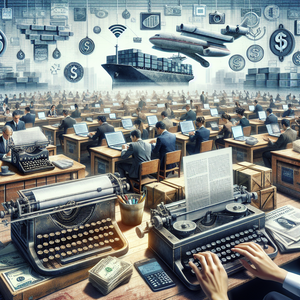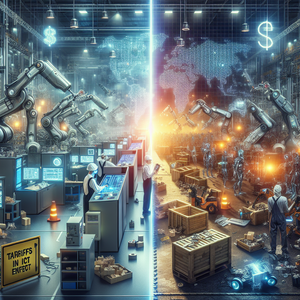
The Impact of Tariffs on Healthcare: Costs, Supply Chain Challenges, and Emerging Career Opportunities
In recent years, tariffs have become a key factor reshaping the healthcare industry. Introduced to protect domestic industries, these trade policies—particularly those implemented during the Trump administration—have had far-reaching consequences. While intended to bolster American manufacturing, tariffs have led to rising costs for medical devices, pharmaceuticals, and hospital supplies. They’ve also disrupted global supply chains, intensified financial pressures on healthcare systems, and indirectly affected patient care. Yet, amidst these challenges, new opportunities have emerged, particularly in workforce roles addressing supply chain resilience, compliance, and local manufacturing.
Job Summaries:
Economic Impacts of Tariffs on Healthcare:
- Tariffs have driven up prices in the healthcare sector, especially for medical devices, pharmaceuticals, and hospital supplies.
- These increased costs have led hospitals to reevaluate budgets and procurement strategies.
- Supply chain disruptions caused by tariffs have resulted in delivery delays and increased reliance on domestic suppliers, exposing vulnerabilities.
- Financial pressures have also forced companies to cut back on R&D budgets, hindering innovation.
Workforce Shifts and Career Opportunities:
- Despite challenges, tariffs have created new career opportunities in healthcare.
- Roles such as healthcare supply chain analysts, medical device pricing analysts, compliance officers, R&D investment strategists, and domestic manufacturing specialists are in demand.
- These professionals help organizations navigate rising costs, regulatory compliance, and supply chain resilience, ensuring the industry adapts effectively.
Opportunities Amidst Challenges:
- The healthcare industry is adapting to tariff-induced challenges by prioritizing supply chain flexibility, enhancing domestic production, and strengthening compliance strategies.
- This evolution has led to a growing demand for skilled professionals in logistics, economic analysis, and manufacturing, offering abundant career opportunities.
The imposition of tariffs has profoundly reshaped the U.S. healthcare industry, introducing significant economic challenges while simultaneously fostering innovation and adaptation. Rising costs and supply chain disruptions have forced organizations to rethink long-standing practices, leading to new opportunities for professionals in logistics, compliance, and manufacturing. As the industry continues to navigate these changes, individuals with expertise in these areas will play a pivotal role in ensuring healthcare remains accessible, innovative, and resilient.
Explore More Jobs

